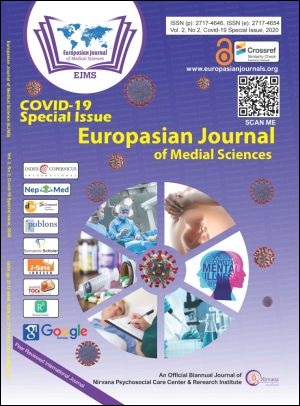Mental Health Implications of COVID-19 in Kenya
Keywords:
COVID-19, Coronavirus, PandemicAbstract
Dear Editor,
As the COVID-19 pandemic continues to spread rapidly worldwide, it is certainly having an immense effect on the mental wellbeing of people thereby increasing the number of people with elevated levels of stress, depression, or anxiety. Developing country will undoubtedly have serious mental health implications due to the poor or almost non-existent mental health services.
In Kenya, mental health is still somewhat neglected mainly because only 0.05% of the Governments’ health budget allocation goes to mental health. The allocated health budget largely focuses on communicable diseases despite the impact of mental health on the Kenyan population. Although there are no accurate data on the prevalence of mental disorders in Kenya, various studies have shown that the prevalence of depression generally varies from 19% in household review studies to 42% among the general population visiting the health facilities. Similar to other African countries, Kenya has a shortage of mental health professionals. Mathari hospital is the country’s only mental referral facility where one nurse handles up to 150 patients. In a country with only approximately 100 psychiatrists serving a population of 45 million, only a third of the psychiatrists work in government health facilities. The rest of the psychiatrists work in private health facilities that are generally more expensive making them inaccessible to the majority of the population due to the unaffordable consultation fees.
Downloads
Downloads
Published
How to Cite
Issue
Section
License
Copyright (c) 2020 Marylyn Ochillo

This work is licensed under a Creative Commons Attribution 4.0 International License.
The author(s) retain the ownership of the copyrights for their work published in EJMS without any restrictions. Upon submission, the author(s) grants EJMS a license to publish, including to display, store, copy, and reuse the published content.
License to Publish
By submitting a manuscript to EJMS, the author(s) grant the journal a non-exclusive license to:
- Publish and distribute the content in all formats, media, and platforms (both existing and future), while identifying EJMS as the original publisher.
- Reproduce, display, and store the content in both print and online formats, including institutional and digital repositories.
- Translate, adapt, and summarize the work, including reprints, extracts, and abstracts.
- Develop derivative works based on the original content.
- Include the work in electronic databases and provide links to third-party materials.
Creative Commons Licensing
In addition to EJMS’s publishing rights, authors grant third parties the right to use, share, and distribute their work under the Creative Commons Attribution 4.0 (CC BY 4.0) International License. This allows unrestricted use of the content, provided proper attribution is given to the original author(s) and the journal.

